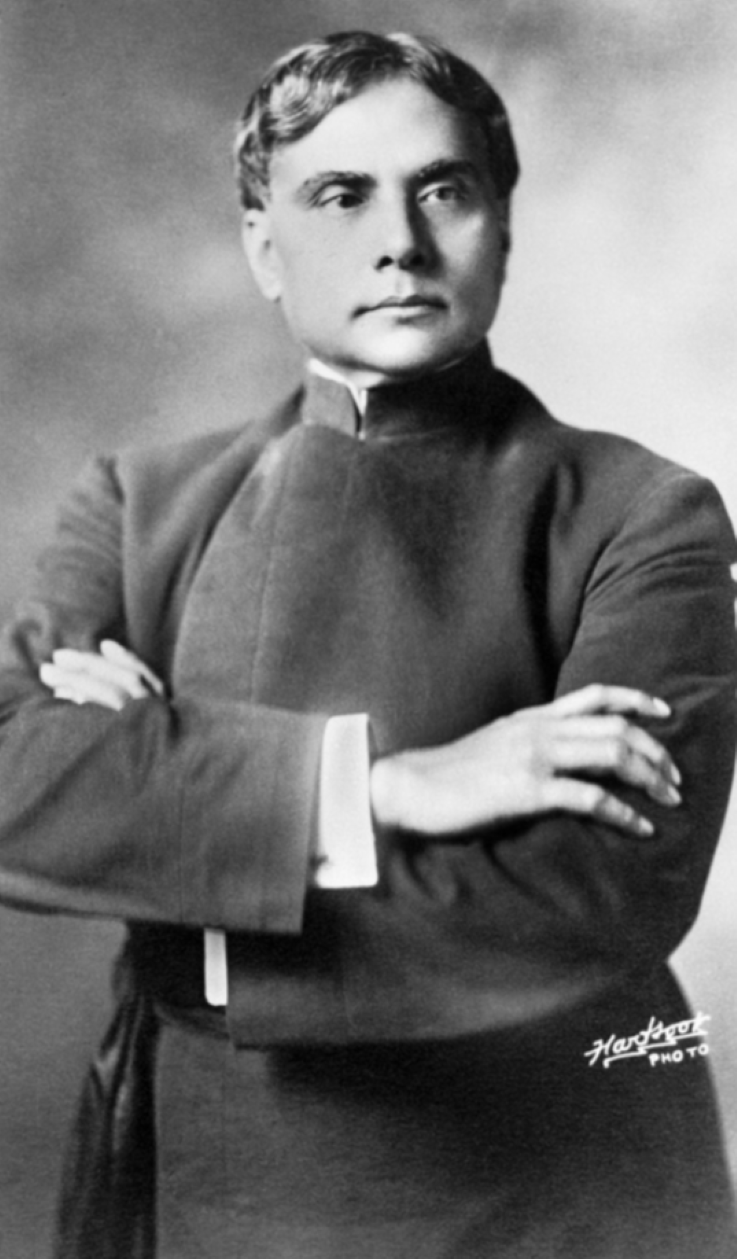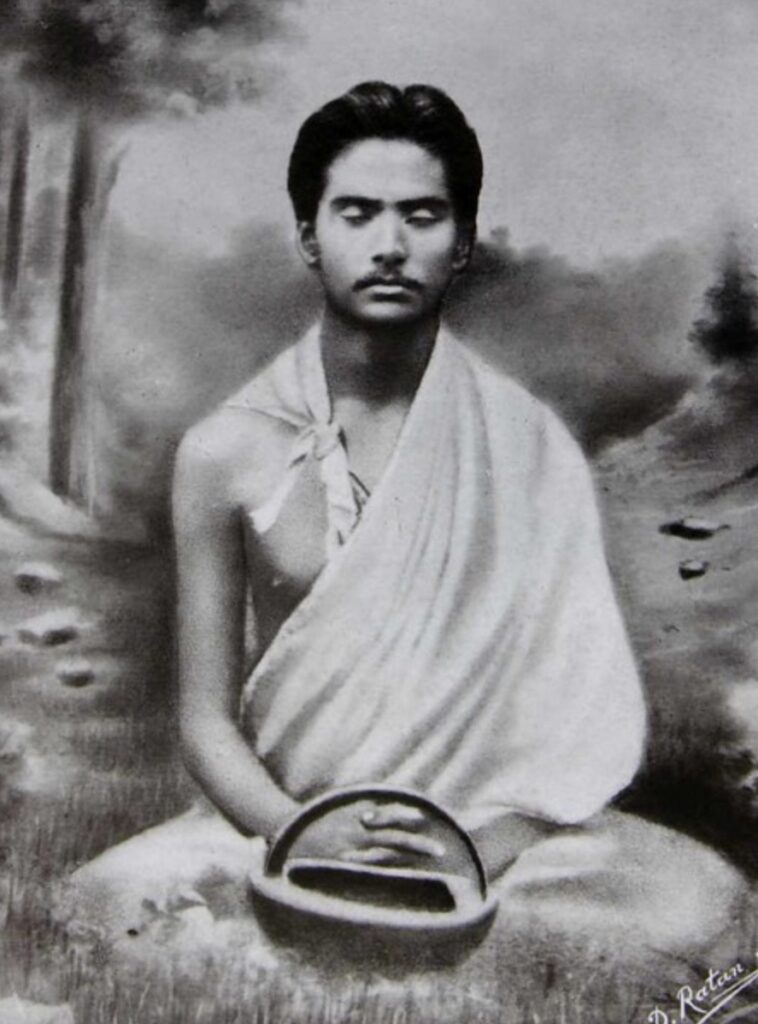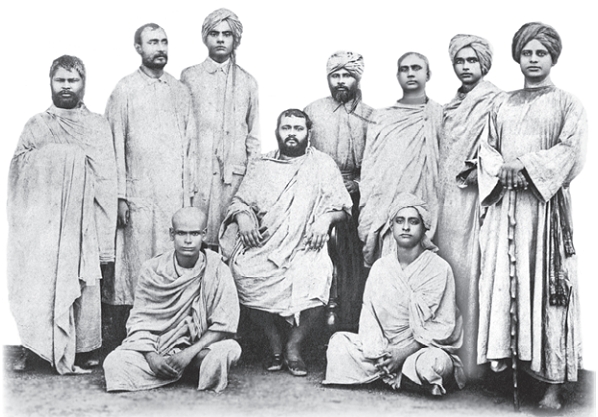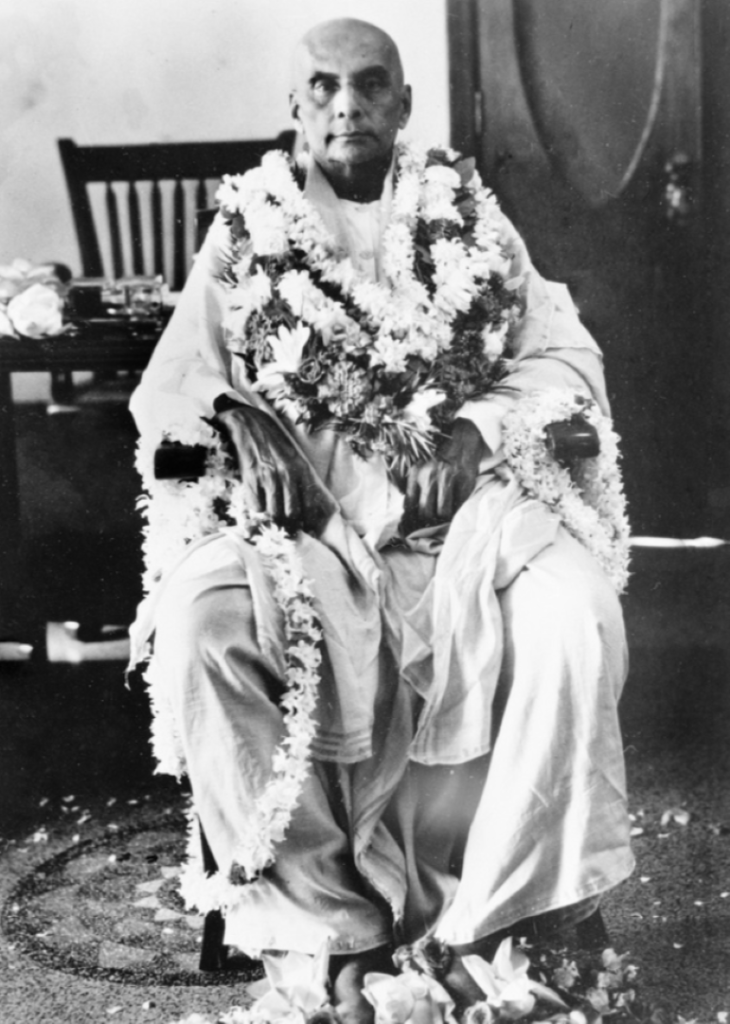
Swami Abhedananda (1866–1939) was born in Kolkata, India. His premonastic name was Kali Prasad Chandra (Kali). From a very young age, he had a great eagerness to learn yoga. When he was 18, he went to Dakshineswar and met Sri Ramakrishna. Under his guidance, Kali practiced meditation and was blessed with many visions.

He served Ramakrishna during his last illness. After the Master’s passing, he joined the first monastery of the Order in Baranagar Math. After his sannyāsa, he was given the name “Abhedananda.” At the monastery, he used to shut himself up in a room and do intense meditation or study. This earned him the nickname Kali Tapasvi (Kali the Ascetic). He spent several years visiting places of pilgrimage on foot.

In 1896 Swami Vivekananda brought him to London for Vedanta work there. The next year he crossed over to US and was given charge of the newly founded Vedanta Society in New York. His profundity of scholarship, incisive intellect and oratorical power elicited widespread admiration, and people thronged to listen to him. He was also a prolific writer.
Abhedananda made several visits to Boston. His first visit was in May 1898 when he visited Harvard, gave talks and held conversations in Cambridge, Newton and Medford. Later in the same year he gave classes at Green Acre, in Eliot, Maine. In 1899 he visited New England again and gave talks and classes in Worcester, Cambridge and Lynn.
After his long and successful work in America, Abhedananda returned to India in 1923 and started an organization named Ramakrishna Vedanta Math. He visited Belur Math occasionally and maintained cordial relationship with his brother monks there. Abhedananda presided over the Parliament of Religions in Kolkata, which was organized to celebrate the birth centenary of Sri Ramakrishna.

Of all the contributions that Abhedananda made to Ramakrishna Movement, the most widely appreciated and enduring one is his Sanskrit composition of sublime and beautiful hymns on Sri Ramakrishna and Sri Sarada Devi. His hymn to Holy Mother (prakṛtiṁ paramāṁ abhayaṁ varadām), which is sung in many monasteries of the Order, is unrivaled in the depth of conception and felicity of expression.
Books